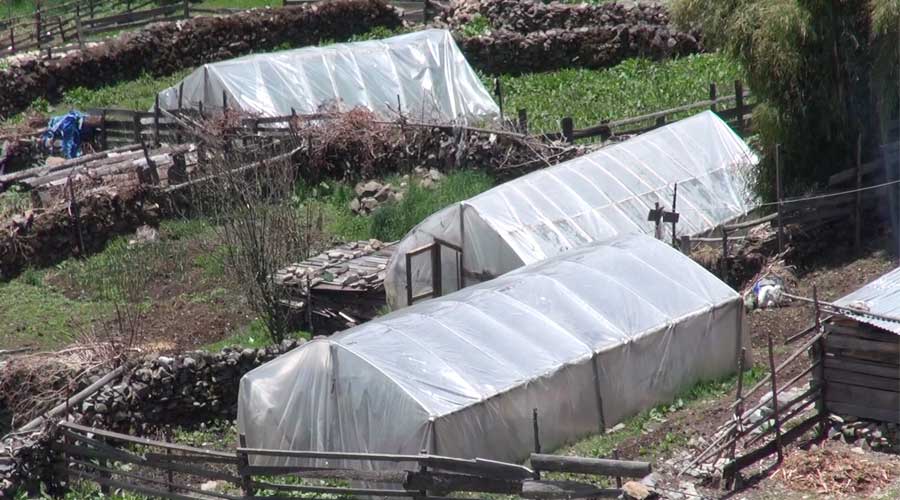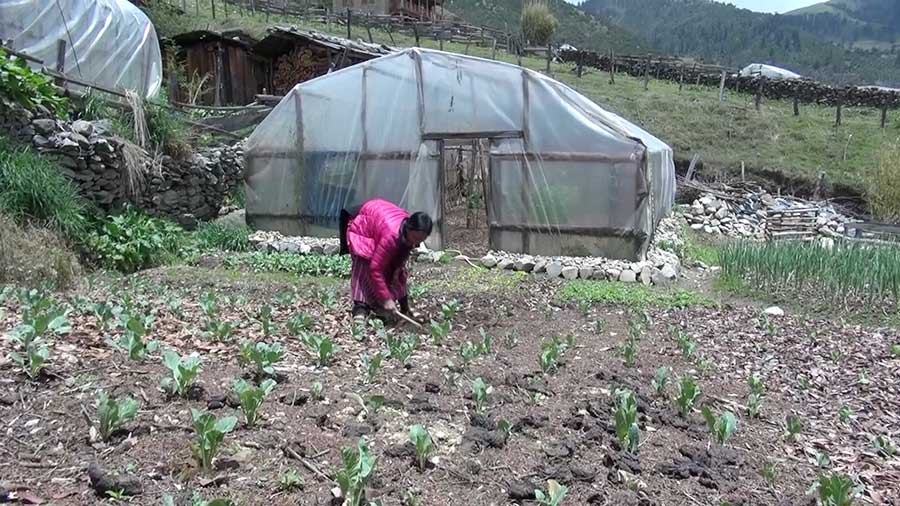
Until three years ago, it was a far-fetched dream for the people of Merak Gewog to achieve vegetable self-sufficiency. The extreme cold weather deterred people to grow vegetables all year round. But now, this goal has been realised through greenhouse farming, supported by the small development projects of the Government of India.
Located between 3400 to 3500 metres above sea level, Merak is one of the coldest places in the country. It is home to more than 350 families and most of them practice greenhouse farming.
At this time, they grow spinach, chilli, beans, carrot and cucumber.
They grow most of these vegetables during winter also. Villagers are now looking forward to sustainable livelihoods. They can now focus on making income from their dairy products. Earlier, this wasn’t possible since they have to trade the products for vegetables.
“Before the greenhouse farming initiative, we used to travel to Chaling Village and Shongphu Gewog to buy vegetables. We traded butter and cheese with vegetables then. But now, we can grow vegetables for personal consumption,” said one of the residents in Merak, Phurba Yangzom, who has a greenhouse farm near her house.
People in Merak are also now heeding health advice on the need to eat nutrient-rich food.
“In my greenhouse farm, there are spinach, beans, chilli and cucumber. These are healthy vegetables as per the doctors and I am happy that I am able to feed my children with healthy meals,” told another resident in Merak, Kunzang Choden.
 The greenhouse farming initiative has ensured vegetable production during the off-seasons.
The greenhouse farming initiative has ensured vegetable production during the off-seasons.
“I harvested chilli last time and the crop weighed roughly 30 kilograms. I have dried some for consumption during the winter. Earlier, this was completely next to impossible,” added a resident, Pema Youden.
This shift in agriculture was made possible through the small development projects under the GoI funding in 2019.
Facilitated by the Merak Gewog administration, the villagers were provided with greenhouse facilities, mainly tarpaulin sheets, worth Nu 4 M.
Due to the greenhouse farming initiative, the gewog is now in the position to provide enough vegetables during the long winter months.
Sonam Darjay, Trashigang
Edited by Pema Lhaden












